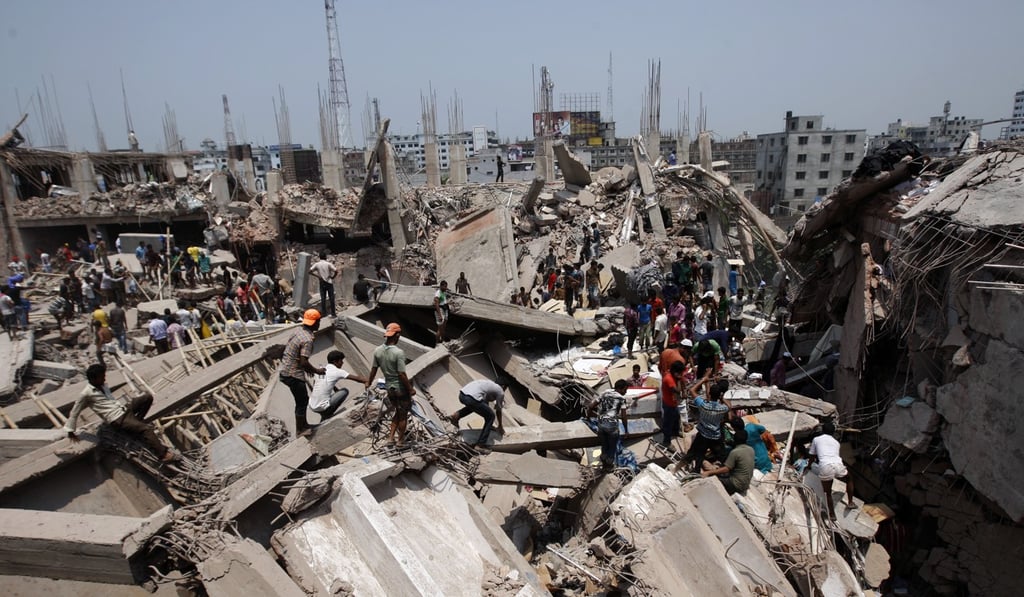Advertisement
Bangladesh factory safety monitors introduced after deadly Rana Plaza disaster given court extension
- Factory owners had been lobbying for the monitors to leave, arguing that the programme’s five-year mandate had expired
- But global clothing brands took the issue to the country’s Supreme Court and won
Reading Time:2 minutes
Why you can trust SCMP

Global clothing brands including H&M, Primark and Tesco won a Bangladesh Supreme Court case on Sunday, allowing international factory safety monitors to operate in the country which has had a string of industrial disasters.
Advertisement
The top court in the South Asian nation – that became notorious after the 2013 Rana Plaza disaster in which 1,138 people died – ruled that the Bangladesh Accord on Fire and Building Safety could continue its oversight of clothing factories for one more year.

Bangladesh is the world’s second biggest garment maker after China and the country’s factory owners had been lobbying for the Accord monitors to leave, arguing that the programme’s five-year mandate had expired.
After a lower court backed the factory owners, ordering the monitors to wind up its operations, labour groups warned of the risk to workers’ lives if the Accord, which is backed by about 200 mainly European clothing labels, was forced out.
Advertisement
The Accord has played a big role in pushing through safety upgrades since the collapse of the Rana Plaza warren of factories in 2013.

Advertisement